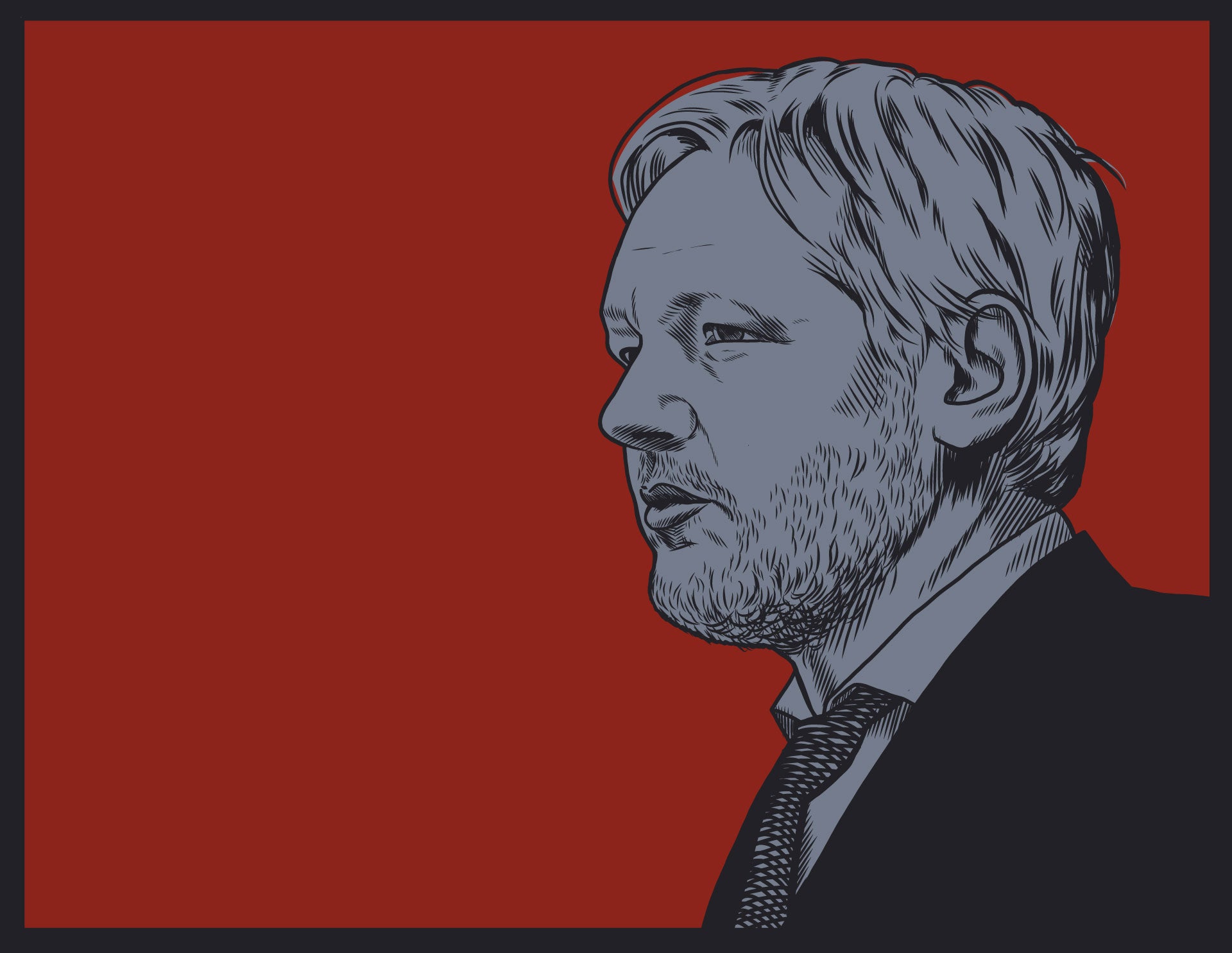
WikiLeaks co-founder Julian Assange has been arrested at the Ecuadorian embassy in London, marking an end to the seven-year chapter of his political asylum. During these years, Assange has evolved from the darling of the left to an alt-right information kingpin, helping to elect the president of a country that could now sentence him with five years in jail.
Assange’s arrest was sparked by Ecuador’s president Lenin Moreno withdrawing Assange’s asylum status. Moreno said it followed “repeated violations [by Assange] to international conventions and daily-life protocols”.
The Met Police then arrested him for failing to surrender to court. The computer scientist and journalist has not left the embassy since 2012, after Swedish police issued an international arrest warrant in 2010 to question him on suspicion of rape, sexual molestation and unlawful coercion – charges that Assange denies and have since been dropped.
He has remained housebound at the Ecuador embassy in London, fearing extradition to the US to face espionage charges for his role in leaking secret US government documents via WikiLeaks.
Following his arrest today, he was indicted by the US government on conspiracy to break into a government computer with Chelsea Manning, a former intelligence analyst in the US Army.
The UK’s Foreign Office minister Sir Alan Duncan said that Assange’s arrest followed “extensive dialogue” between the UK and Ecuador.
How well do you really know your competitors?
Access the most comprehensive Company Profiles on the market, powered by GlobalData. Save hours of research. Gain competitive edge.

Thank you!
Your download email will arrive shortly
Not ready to buy yet? Download a free sample
We are confident about the unique quality of our Company Profiles. However, we want you to make the most beneficial decision for your business, so we offer a free sample that you can download by submitting the below form
By GlobalData“It is absolutely right that Assange will face justice in the proper way in the UK. It is for the courts to decide what happens next,” he said.
BREAKING: #Assange removed from embassy – video pic.twitter.com/qsHy7ZVPg5
— Ruptly (@Ruptly) April 11, 2019
However, WikiLeaks tweeted that Ecuador “illegally terminated Assange political asylum in violation of international law”.
Meanwhile, NSA whistleblower Edward Snowden tweeted that Assange’s arrest is a “dark moment for press freedom”.
However, others that supported his entry into the Ecuadorian embassy are now deeply critical of Assange. Politics has transformed dramatically in the last seven years, and perceptions of Assange have changed along with it.
The ebbs and flows of Assange’s support
Assange’s supporters see his arrest as an attack on the freedom of the press; his critics as justice finally being served.
Between WikiLeaks’ 2006 launch and 2010, Assange could count on support from high-profile politicians, celebrities and activists. WikiLeaks’ release of documents relating to the Afghanistan and Iraq Wars, as well as files on the US’ controversial Guantanamo Bay detention camp, appeared to cement Assange’s place as an activist uncovering unsavoury acts committed by US institutions.
As a member of the cypherpunks, an activist movement that pushes for strong cryptography and privacy technology in the face of government snooping, Assange had often commanded respect from the tech community.
This, along with his programming and hacking background, gave him broad appeal to those in the typically liberal-leaning Silicon Valley.
But while he was a darling to much of the liberal left, many – particularly on the right – saw him as a traitor. Among Democrats, too, he has been vilified, with the then US vice president Joe Biden calling him a “terrorist”.
But perception of Assange has evolved during his seven years in the embassy; his appeal has ebbed and flowed.
To some, he is now seen as an alt-right information kingpin. And a large part of that is down to Donald Trump.
Trump: “I love WikiLeaks!”
Much of Assange’s transformation stems from WikiLeaks’ role in the 2016 US presidential election campaign. At key moments of the campaign, WikiLeaks released emails and documents – obtained by hackers affiliated with Russia’s intelligence service – from Hillary Clinton’s campaign manager.
Assange has long insisted that the emails did not come from Russia, in the face of overwhelming evidence presented by government and private investigations.
Many commentators believe the leaking of these documents was a significant factor in Clinton’s eventual defeat to Donald Trump.
And it is perhaps Trump that best exemplifies the oscillating and at times fickle nature of Assange’s support.
In 2010, Trump called WikiLeaks “disgraceful” and even suggested that releasing sensitive information warrants the death penalty.
But, following WikiLeaks’ dump of Hillary’s hacked emails, the 45th president of the United changed his tune.
“I love WikiLeaks!” he told voters (repeatedly).
With Trump’s election, the pendulum swung right. And with that, so did much of Assange’s support base.
Assange arrest: Ties to Farage and Stone
Further demonising Assange to the left is the sprawling web of right-wing players that the activist has been in contact with. On 9 March former UKIP leader Nigel Farage was spotted leaving the Ecuador embassy in London.
Adding another thread to the complex web, Assange has ties to Cambridge Analytica, the political firm that used Facebook user data without consent to target voters in the Brexit referendum and 2016 presidential election.
Roger Stone, a long-time political advisor to Trump, was indicted for allegedly coordinating with Trump officials about the WikiLeaks emails.
According to a document from Special Counsel Robert Mueller’s team, which had been investigating Russian interference in the US election, Stone received a tip-off that “friend in embassy plans 2 more dumps”.
The US Senate committee had asked to interview Assange as part of its investigation into alleged Russian interference into the 2016 presidential election.
Should Assange’s extradition go ahead, he will likely have to answer these questions in US courts, a country where he played a key role in getting its right-wing president elected.
Whether Assange ultimately ends up assisting authorities or facing the full force of US law, one thing is clear: his political reputation will never be what it was in 2012.
Read more: Global far-right effort to influence Brexit unearthed by researchers




